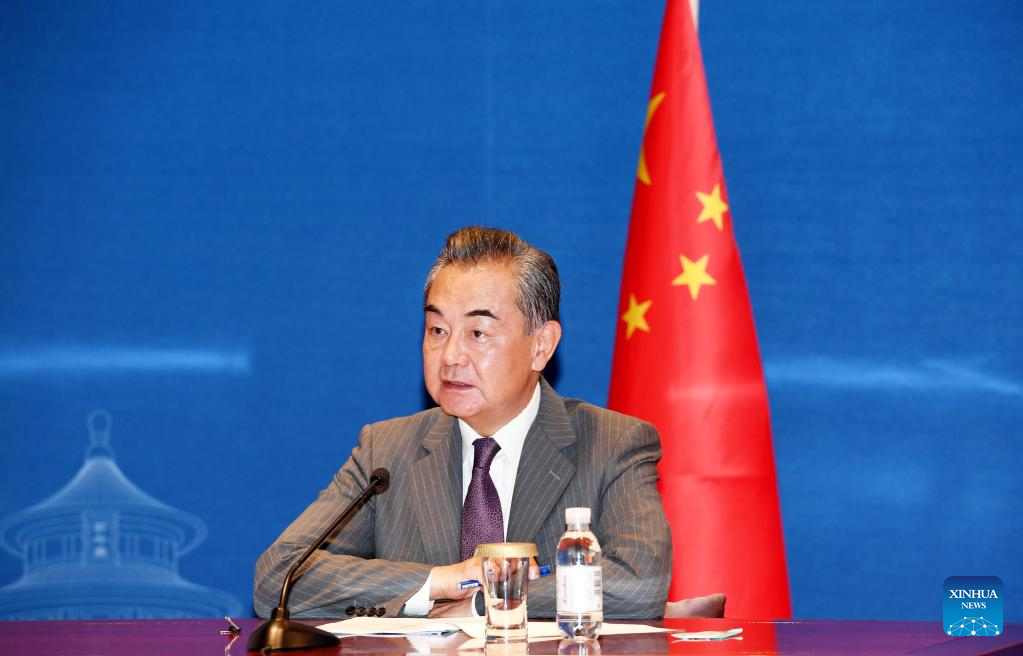
Chinese State Councilor and Foreign Minister Wang Yi meets with visiting diplomatic envoys of developing countries from Asia and Africa to the UN Office at Geneva via video link in Qingdao, east China's Shandong Province, Aug. 15, 2022. (Xinhua/Li Ziheng)
QINGDAO, Aug. 15 (Xinhua) -- Chinese State Councilor and Foreign Minister Wang Yi on Monday met via video link with visiting diplomatic envoys of developing countries from Asia and Africa to the UN Office at Geneva.
Wang said that China is willing to uphold the vision of a community with a shared future for humanity, and work in solidarity with other developing countries to achieve common development and prosperity and to make the planet even more beautiful.
"In the face of the ongoing COVID-19 pandemic, the turbulent international situation and the resurgence of the Cold War mentality, we need a strong UN more than ever," said Wang.
He said all sides should firmly uphold the international system with the UN at its core, the international order underpinned by international law, and basic norms governing international relations based on the purposes and principles of the UN Charter.
He stressed that the representation and voice of developing countries should be enhanced and multilateral institutions should not be reduced to tools for certain countries or groups of countries to manipulate and decide international affairs.
Wang introduced China's achievements in the development of human rights cause, saying that China is willing to carry out human rights exchanges and cooperation with other countries on the basis of equality and mutual respect with an open attitude, so as to learn from each other and make progress together.
Wang expounded on the historical facts of the Taiwan question and China's solemn position, stressing that China must make the necessary and legitimate responses to every blatant provocation by the United States.
This is exercising the legitimate right to safeguard national sovereignty and territorial integrity, as well as safeguarding the principle of non-interference in other countries' internal affairs, he said.
The envoys lauded China's world-renowned achievements and strong leadership, commending China's efforts on promoting development, progress and social equality.
They said the one-China principle established by the United Nations General Assembly (UNGA) Resolution 2758 is the consensus of the international community and the political basis for developing bilateral relations between all countries and China. Taiwan and Xinjiang are both integral parts of China, and China's internal affairs brook no interference.
They also said that human rights issues should not be politicized, and measures taken by China to defend its legitimate rights should be firmly supported by the international community. ■



